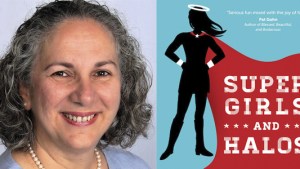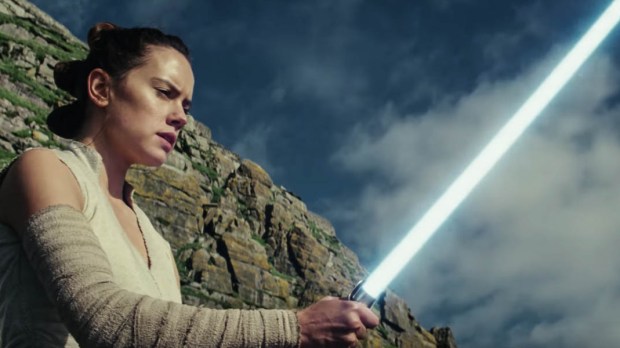By now, most people who care have seen Star Wars: The Last Jedi. I’ve entertained myself reading outraged comboxes and articles decrying the overwhelming presence of female leadership in the new films, and how the vision of the series has crumbled and crumpled in Disney’s merchandise-driven offerings.
Most of my response to the initial criticism included some dismissive eye rolls and a smug security that a little round of girl power wouldn’t hurt anyone. I was in the midst of writing a book about female heroes in popular media, Super Girls and Halos, when Star Wars: The Force Awakens debuted, and I was beyond thrilled to see that the next generation Jedis included strong female characters.
And then, I saw The Last Jedi. I left the theater conflicted. On the one hand, I loved General Organa’s presence in this film. She displayed courageous leadership as well as a maternal gentleness that I think are the strengths women bring to leadership. On the other hand, I found elements of the story forced. Suspension of disbelief and decades-old fandom of the series allowed me an entertaining viewing, but in the analysis, I was left wanting. Why is Rey’s use of the Force so superior without any training? Why is Poe set up as a mutineer? (that resolution was ridiculous, by the way). And why, oh why, does Rose Tico stop Finn’s heroic act? Nevermind that Vice-Admiral Holdo did the right thing at the end … the way she got there left me frustrated by the “I know how to do this better than you” vibe that laid ground for a mutinous act. I found myself agreeing more and more with the combox critics.
I applauded Bishop Robert Barron’s analysis when he pointed out the following:
“The overriding preoccupation of the makers of the most recent Star Wars seems to be, not the hero’s spiritual journey, but the elevation of the all-conquering female. Every male character in The Last Jedi is either bumbling, incompetent, arrogant, or morally compromised; and every female character is wise, good, prudent, and courageous.”
Believe me, I don’t like to see this criticism of a movie franchise that I loved as a child, and have had the opportunity to revisit twice more in my lifetime. When I recently received an email asking me to comment on Bishop Barron’s assessment given the publication of my book, all I could think of was yes, that about covers it.
The feminine and masculine are meant to work in concert and complementarity, not at odds with each other for one to be superior to the other. Sticking women in lead roles for the sake of inclusiveness damages the narrative: they have to have something to contribute for these characters to be meaningful.
I think what we are seeing in some of these new female-driven characters is a shift in the power struggle; they have taken the power completely away from men. General Organa, Vice-Admiral Holdo, and Rey have upset the balance. There’s nothing wrong with upsetting the balance — that’s why I wrote about female heroes and our need to see more women leading. The problem is upsetting the balance at the cost of the men. It is uncomfortable to note the emasculation of Po in this film, and the message that women are superior because we seek peace and thus know better.
One of the great moments in film showed Finn about to engage in a sacrificial act in which heroes excel, only to be thwarted by a woman who stops his sacrifice in mid epic journey. The archetype isn’t challenged in the film; it is broken, or rather, rewritten. The problem with that is that we expect the archetype and don’t get it. No wonder so many fans are losing their minds in the comboxes. Barron uses the language that explains it.
In short, the writers who claim to oppose an oppressive patriarchy by focusing on female protagonists for the sake of shaking up the genre are not contributing anything positive to the narrative. Create a heroine who, like Luke before her, has to struggle to master the Force, as we all, male and female, struggle to find and reconcile our faith journeys. Create an Admiral who can demote a disobedient subordinate without resorting to typing him in a disparaging way. Create male and female characters each worthy of dignity, each heroic in his or her own way.

Read more:
30 years in the making: Super Girls and Halos!

